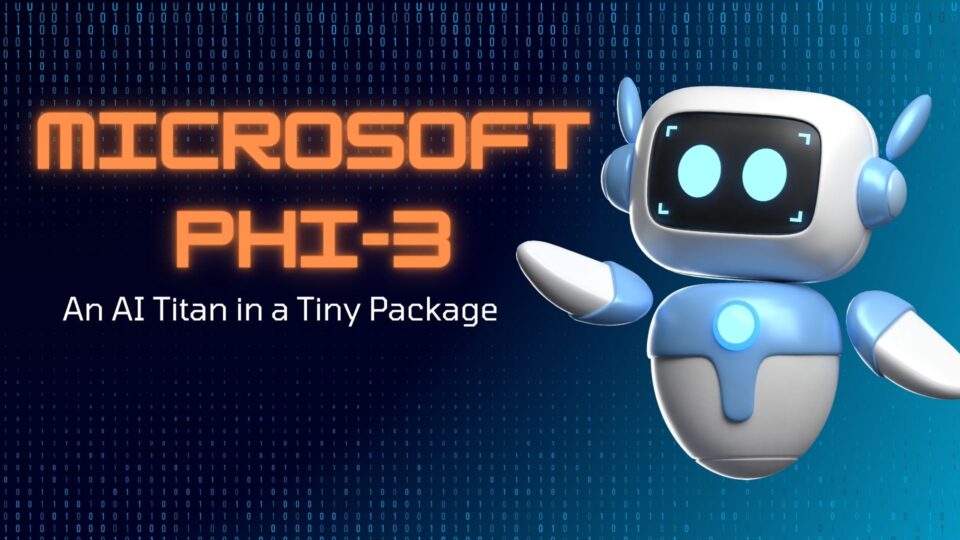
Microsoft Phi-3: An AI Titan in a Tiny Package
Microsoft has thrown a curveball into a world that appears fixated on ever-larger, ever-more-powerful artificial intelligence models. Phi-3 is their tiniest AI model to date. Phi-3 is not little, either, and it promises a lot for the accessibility and efficiency of AI in the future. To know more about AIs and related technology visit ai directory.
Small Does Not equate to Simple

Historically, the fundamental information units that an AI model utilizes to learn and analyze information have been measured in billions of parameters. Bigger models, including trillions of parameters, are capable of doing intricate jobs like translating languages or producing other creative content. But these giants need a lot of processing power, which limits their practical uses and makes them unaffordable for many people.
Phi-3 defies convention with its “mini” variant having just 3.8 billion parameters. On some jobs, Microsoft says Phi-3 can outperform far bigger models. Part of the reason for this is its special training approach, which draws inspiration from bedtime stories for kids. Phi-3 gets remarkable outcomes with less data by concentrating on fundamental ideas and gradually developing comprehension.
Emergence of a New On-Device AI Era
The efficiency of Phi-3 is best shown by its compatibility with laptops and cellphones with little processing power. A fresh round of on-device AI applications is now possible. Consider a virtual assistant that, without an online connection, can instantly translate languages or respond to your questions. Beyond applications for personal use, Phi-3 has promise. Companies with less resources might take use of its skills for jobs like data analysis or chatbots for customer care.
Security and Privacy

Smaller size of Phi-3 also provides benefits for privacy and security. Data privacy and security are issues since large language models frequently need enormous volumes of data to be trained. Phi-3 can be trained on datasets that comply with more stringent privacy laws because it needs less data. Its on-device runtime further reduces security threats by ensuring that private data never leaves the user’s device.
Future Directions for Phi-3

Microsoft has declared intentions to release larger versions, Phi-3 Small and Phi-3 Medium, which will provide a range of functionality and resource utilization, even if Phi-3 Mini is the first iteration already accessible. With this tiered approach, AI is more flexible and approachable than ever before since customers may select the Phi-3 that best fits their requirements.
Phi-3 advances the democratization of AI significantly. Its effectiveness, security, and on-device app possibilities open the door to a day when AI is available to everyone, not just tech behemoths and research institutes. Though the trip is only getting started, Phi-3 is a little behemoth that has the power to change the way we connect with technology and the outside world.